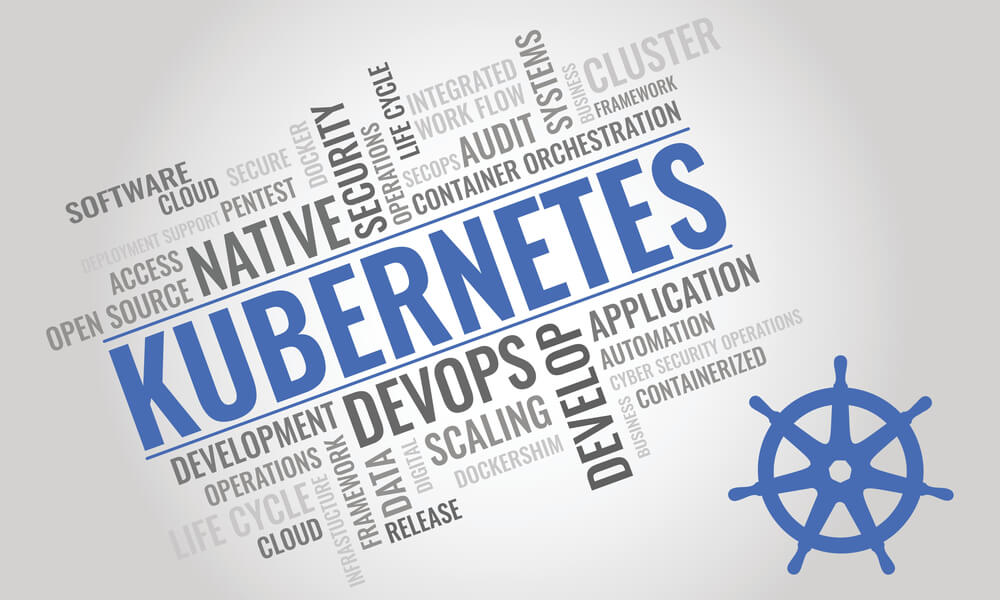Choosing your cloud-native orchestration platform is no easy task. You need to weigh the pros and cons before deciding on a provider. Kubernetes is by far the most popular orchestration platform. However, there are both advantages and disadvantages to adopting it for your DevOps team. In this article, we’re looking at the pros and cons of Kubernetes. You can use it to decide whether Kubernetes software sounds like it would be a good fit for your company.
Kubernetes will continue to be the most popular and innovative orchestration platform on the market. But that doesn’t mean you need all that it has to offer. Continue reading to learn whether Kubernetes is right for your business.
The Pros of Kubernetes
Improved Productivity
Kubernetes, managed properly, leads to significant productivity gains. Due to its extensive ecosystem that helps users take advantage of Kubernetes’s features, you can get benefits from Kubernetes you wouldn’t be able to build yourself.
For example, you can standardize deployment and testing workflow for every developer on your team. You can also create CI/CD pipelines for Kubernetes and tools such as Prometheus make monitoring easier than before.
The wide range of tools available shortens release cycles and increases time to market times, streamlining engineering workflows and improving software quality from start to finish. In turn, you have access to everything you need. Additionally, most of Kubernetes’s tools are open-source and free to use.
Attract Talent
Software engineers want to use the most advanced technologies so they can craft their artwork. Kubernetes is one of the most advanced technologies on the market, combining with efficient workflows and other cloud-native tools to be an attractive option for applicants.
Kubernetes is also appealing to your existing employees. Upgrading your company software infrastructure will excite your dev teams and reduce employee turnover over long periods. People tend to overlook this benefit and focus on short-term benefits instead.
However, Kubernetes is just as beneficial long-term as it is short-term and they can provide a significant boost to your infrastructure.
Stay Ahead of the Curve
Kubernetes consistently stays at the top of cutting-edge technology. The reason you can depend on Kubernetes comes down to a few reasons:
- All major cloud computing hosting providers support Kubernetes and provide out-of-the-box solutions for it.
- Other container orchestration solutions are way behind Kubernetes in both adoption and cloud vendor support.
- The Kubernetes ecosystem experiences the fastest growth rate of any orchestration platform.
Improved Application Stability
If you need to ensure your application’s stability, Kubernetes is an excellent solution. If you require rolling updates without downtime, Kubernetes supports high-availability applications. If you use cloud services from major providers, you can achieve high uptime.
More Affordable than Alternatives
Kubernetes is often cheaper than its alternatives. Of course, its affordability depends on the application, but since the platform has general computing needs, it’s typically more expensive to use with smaller applications.
The larger your computing needs, the more affordability Kubernetes provides. Companies with more extensive infrastructural needs benefit from features such as autoscaling. Autoscaling is a Kubernetes feature that scales your applications and the resources they use during peak times and less busy times throughout the business day.
If you have less traffic on your website, you shouldn’t pay for the same resources you would if the site were busy. The autoscaling feature leads to a high utilization rate, preventing you from lost costs.
K8’s affordability depends on the size of your operation, but in many cases, it can be more affordable. You need to evaluate your application structure to determine the most affordable solution.
The Cons of Kubernetes
Kubernetes MIght be Overkill for Simpler Applications
Kubernetes might be too complex a technology for your company’s needs. If you don’t intend to develop anything too complicated and don’t need a lot of computing resources, you probably won’t benefit from Kubernetes.
Kubernetes Might be Too Complex and Slow Productivity
K8’s complexity is overwhelming for some, and it can slow down productivity if applied to the wrong DevOps team environment. For developers not familiar with infrastructure technologies, Kubernetes’s development workflow is difficult to adjust to.
Difficult Transitions
Most companies can’t start Kubernetes from scratch and need to adapt their existing infrastructure so Kubernetes can run smoothly. Estimating the costs and weighing the benefits of this transition can prove a challenge.
DevOps teams need to adapt Kubernetes to their existing infrastructure and vice versa, and even with an experienced team, Kubernetes’s implementation requires substantial effort and time.
More Expensive than Alternatives
As discussed, Kubernetes can be more or less affordable than alternatives. Situations with difficult transitions can often be more expensive than other, less complex alternatives. If your engineers spend significant time prompting an existing application to run in Kubernetes, productivity can suffer. Even after implementation, users might not see the benefits of migration right away.
Besides the indirect costs, Kubernetes is more expensive than other infrastructures. If you have more limited infrastructural needs, such as a plain website, it might be more cost-effective to use solutions such as a single VM or hosting platforms such as Heroku or Netlify,
Conclusion- The Pros and Cons of Kubernetes
Kubernetes offers a ton of advantages to companies that need its complex features. However, for smaller operations with simpler application requirements, Kubernetes can be more costly than beneficial.
Deciding whether Kubernetes is right for you comes down to whether your DevOps team can implement it without too much of a transitional strain. It also comes down to whether your team needs more extensive application support.
If you find yourself struggling to bring applications to market, you should contact a dedicated sales team. They can help you integrate Kubernetes in a way that increases productivity and leads to long-term results. A simpler software solution will suffice if you can’t identify a glaring need for more extensive application development solutions.


